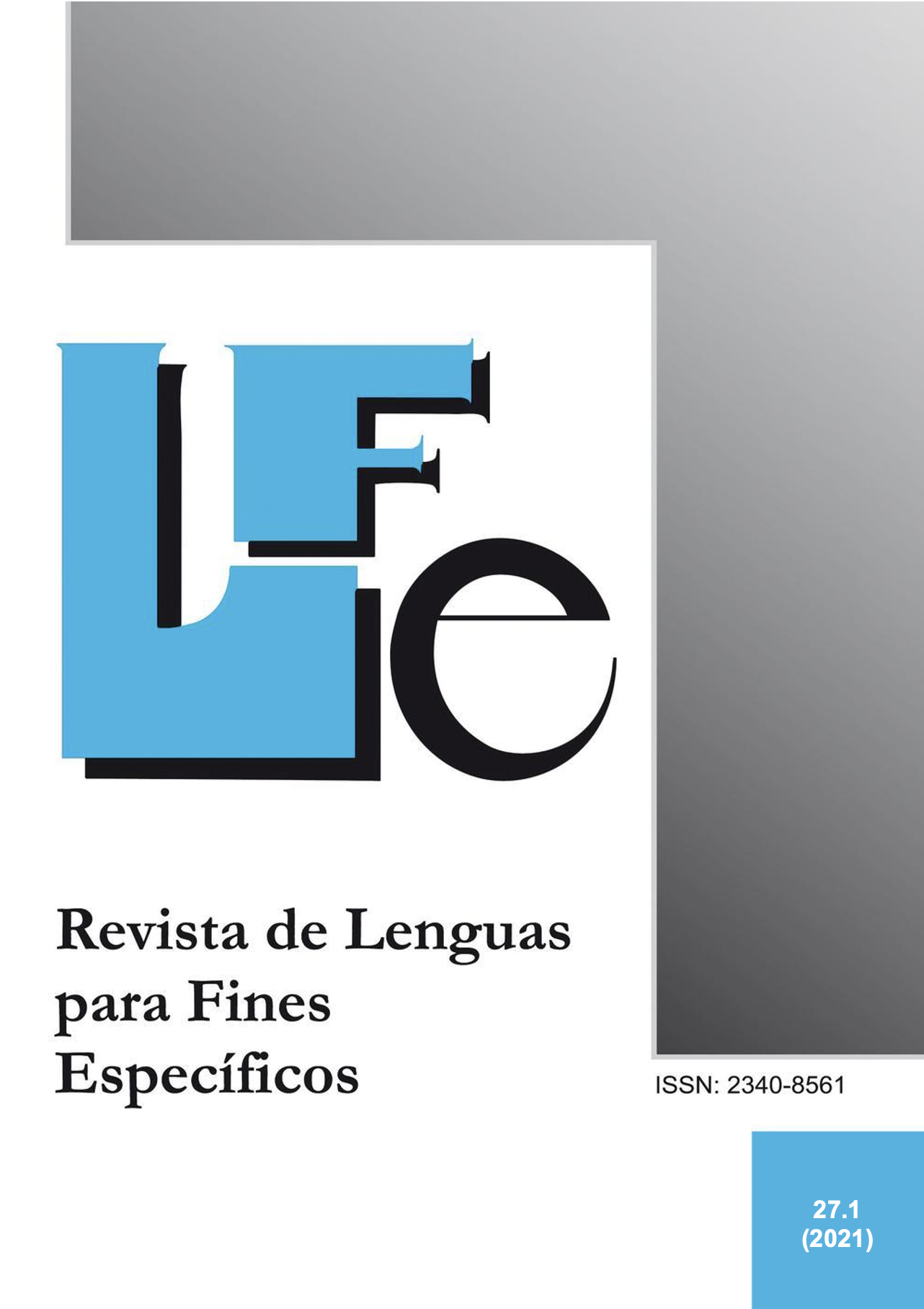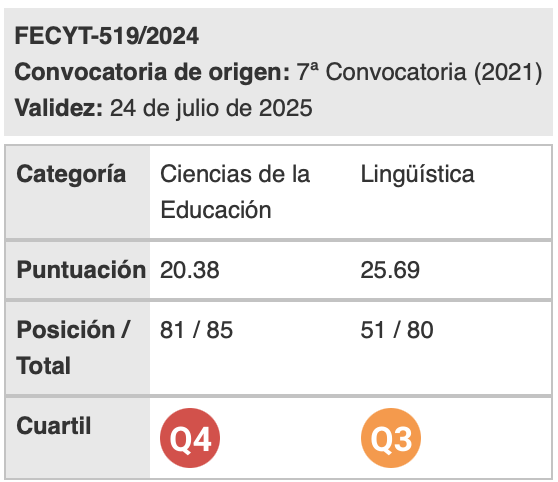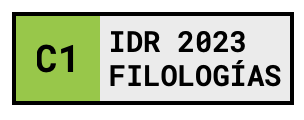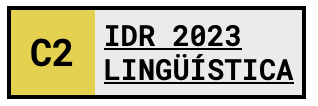A critical analysis of the use of passives and relative clauses in Freshwater Ecology research articles
Keywords:
relative clauses, English for Academic Purposes, research articles, passivesAbstract
Within the framework of comparative studies, this paper discusses the use of passives and relative clauses in Freshwater Ecology research articles. In a corpus of 20 articles, a critical analysis was undertaken in order to highlight existing differences between native and non-native English-speaking authors, male and female researchers, time periods and journal categories. Results revealed non-native English research writers making more use of both passives and relative structures. However, only gender differences were found in the use of relative clauses, with female researchers employing more relatives than their male counterparts. Temporal differences are consistent with previous research that noted a shift towards a less formal discourse in scientific writing. From a didactic point of view, findings of this study are expected to broaden the knowledge of existing variations in scientific writing so that EAP scholars may develop practical writing strategies at the undergraduate or postgraduate level in universities worldwide.
Downloads
References
Abadikhah, S. (2012). The effect of mechanical and meaningful production of output on learning English relative clauses. System, 40(1), 129–143. https://doi.org/10.1016/j.system.2012.01.001
Alvin, L. P. (2014). The passive voice in scientific writing. The current norm in science journals. Journal of Science Communication, 13(1), A03. https://doi.org/10.22323/2.13010203
Basturkmen, H. (2010). Developing courses in English for specific purposes. New York: Palgrave Macmillan. ISBN: 978-0-230-22798-9
Bonyadi, A., Gholami, J., & Nasiri, S. (2012). A Contrastive Study of Hedging in Environmental Sciences Research Articles. Journal of Language Teaching and Research, 3(6), 1186–1193. https://doi.org/10.4304/jltr.3.6.1186-1193
Dodds, W. (2002). Freshwater ecology: concepts and environmental applications. London: Elsevier. ISBN: 0-12-219135-8
Fuertes-Olivera, P. A., & Pérez Cabello de Alba, B. (2012). El papel de los diccionarios pedagógicos especializados en la enseñanza/aprendizaje del ESP. Epos : Revista de Filología, (28), 277. https://doi.org/10.5944/epos.28.2012.12276
Gledhill, C. (2000). The discourse function of collocation in research article introductions. English for Specific Purposes, 19(2), 115–135. https://doi.org/10.1016/S0889-4906(98)00015-5
Grabe, W., & Kaplan, R. B. (1997). On the writing of science and the science of writing: Hedging in science text and elsewhere. Research in Text Theory, 151-167. https://doi.org/10.1515/9783110807332
Hyland, K., & Jiang, F. K. (2017). Is academic writing becoming more informal? English for Specific Purposes, 45, 40–51. https://doi.org/10.1016/j.esp.2016.09.001
Kanoksilapatham, B. (2015). Distinguishing textual features characterizing structural variation in research articles across three engineering sub-discipline corpora. English for Specific Purposes, 37(1), 74–86. https://doi.org/10.1016/j.esp.2014.06.008
Kemp, D. (1998). The environment dictionary. London: Routledge. ISBN: 0-415-12753
Livnat, Z. (2010). Impersonality and Grammatical Metaphors in Scientific Discourse. The Rhetorical Perspective. Lidil. Revue de linguistique et de didactique des langues, (41), 103-119. https://doi.org/10.4000/lidil.3015
Millar, N., Budgell, B. & Fuller, K. (2013). Use the active voice whenever possible: The impact of style guidelines in medical journals. Applied Linguistics, 34(4), 393-414. https://doi.org/10.1093/applin/ams059
Mozaheb, M. A. (2015). Comparative Genre-Based Study of Research Articles' Method and Results Sections Authored by Iranian and English Native Speakers. International Journal of Arts & Sciences, 08(06), 139-152. https://doi.org/10.4013/cld.2014.123.07
Pérez-Llantada, C., Plo, R., & Ferguson, G. R. (2011). “You don’t say what you know, only what you can”: The perceptions and practices of senior Spanish academics regarding research dissemination in English. English for Specific Purposes, 30, 18–30. https://doi.org/10.1016/j.esp.2010.05.001
Saeeaw, S., & Tangkiengsirisin, S. (2014). Rhetorical Variation across Research Article Abstracts in Environmental Science and Applied Linguistics. English Language Teaching, 7(8), 81–93. https://doi.org/10.5539/elt.v7n8p81
Seoane, E. (2013). On the conventionalisation and loss of pragmatic function of the passive in Late Modern English scientific discourse. Journal of Historical Pragmatics, 14(1), 70–99. https://doi.org/10.1075/jhp.14.1.03seo
Sheldon, E. (2009). From one I to another: Discursive construction of self-representation in English and Castilian Spanish research articles. English for Specific Purposes, 28(4), 251–265. https://doi.org/10.1016/j.esp.2009.05.001
Swales, J.M. (1990) Genre analysis: English in academic and research settings. Cambridge: Cambridge University Press. ISBN: 0-521-328691
Tarone, E., Dwyer, S., Gillette, S., & Icke, V. (1998). On the Use of the Passive and Active Voice in Astrophysics Journal Papers : With Extensions to other Languages and other Fields. English for Specific Purposes, 17(1), 123–138. https://doi.org/10.1016/S0889-4906(97)00032-X
Tse, P., & Hyland, K. (2010). Claiming a territory: Relative clauses in journal descriptions. Journal of Pragmatics, 42(7), 1880–1889. https://doi.org/10.1016/j.pragma.2009.12.025
Downloads
Published
How to Cite
Issue
Section
License
Authors who publish with this journal agree to the following terms:
- Authors retain copyright and grant the journal right of first publication with the work simultaneously licensed under a Creative Commons Attribution License that allows others to share the work with an acknowledgement of the work's authorship and initial publication in this journal.
- Authors are able to enter into separate, additional contractual arrangements for the non-exclusive distribution of the journal's published version of the work (e.g., post it to an institutional repository or publish it in a book), with an acknowledgement of its initial publication in this journal.
- Authors are permitted and encouraged to post their work online (e.g., in institutional repositories or on their website) prior to and during the submission process, as it can lead to productive exchanges, as well as earlier and greater citation of published work (See The Effect of Open Access).

Revista de Lenguas para fines específicos is licensed under a Creative Commons Reconocimiento-NoComercial-SinObraDerivada 4.0 Internacional License.

























